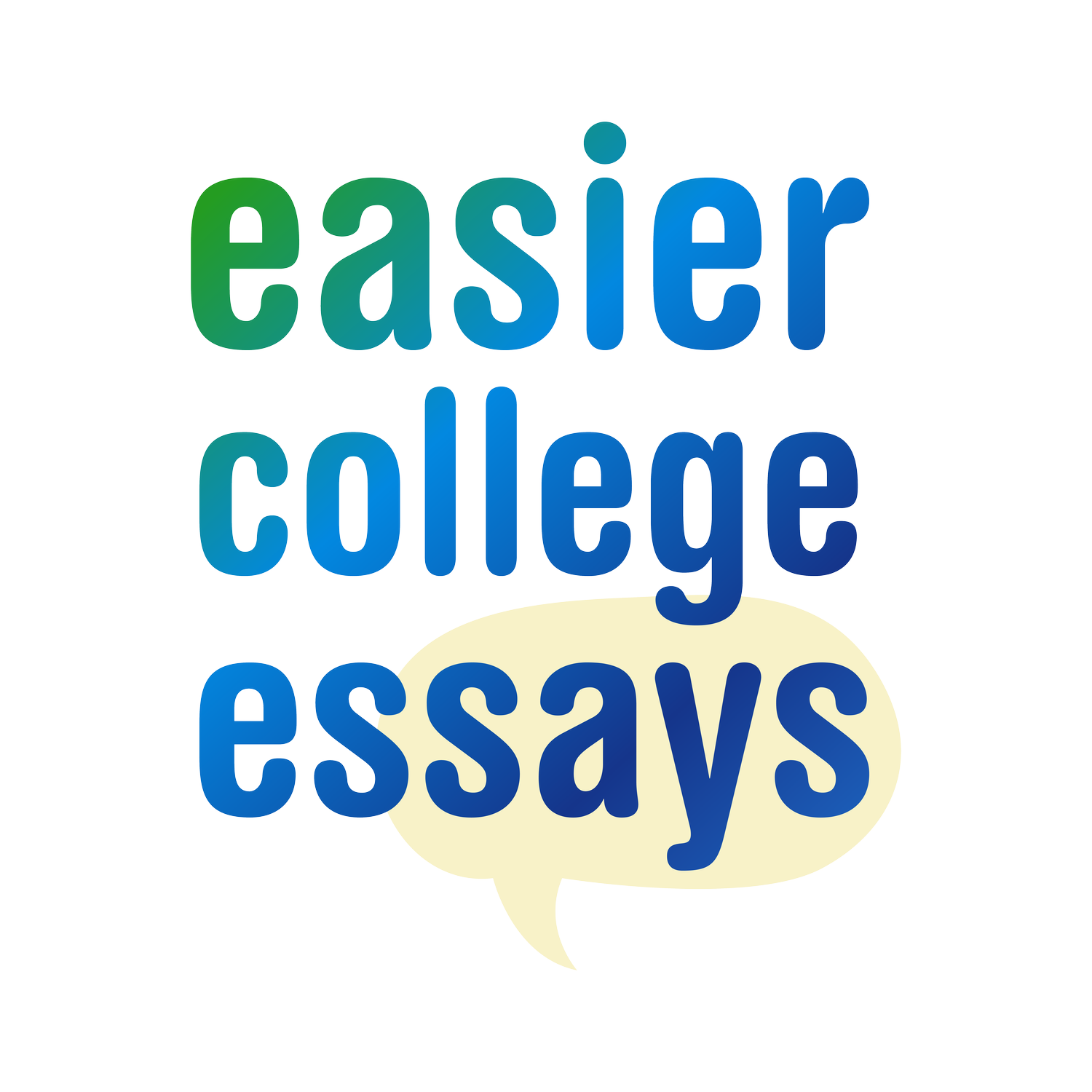The truth about non-boring essays
It’s 10:15 a.m. in a cramped admissions office. The fluorescent lights hum overhead, a half-empty coffee cooling on the desk, and a stack of applications sits like a small mountain within arm’s reach.
A seasoned admissions officer slides back into their chair after a quick stretch, takes a sip, and sighs.
They’ve already powered through 34 essays on “Why did you choose this major?” this morning. Essay #35 blinks onto the screen.
“I want to major in biology because I’ve always loved science.”
The eyes roll… didn’t I just read the same thing in Essay #20?
“Ever since I was little, I’ve been fascinated by how the body works, which is why I want to be a doctor.”
… and wasn’t that nearly word-for-word in Essay #7?
“Science has always been my passion, so biology is the perfect major for me.”
Different words. Same message.
And with an expert click of the mouse, Essay #35 is dropped into the “No thank you” spreadsheet column — adding yet another name to a sheet already longer than the average TJMaxx receipt.
The admissions officer rubs their eyes, leans back in the stiff chair, and stares out the window — secretly calculating how many more of these “I’ve always loved science” essays they can survive before either the clock hits twelve or they fall face-first into their coffee.
Why So Many of the Same Essays
Most teens have no idea why they picked their major in the first place.
Often it was suggested by a parent, a school counselor, or a well-meaning aunt who said, “You’d be great at that.” Maybe it sounded practical, or their BFF is doing the same.
Yet, we’re expecting 17-year-olds — who are still figuring themselves out — to magically produce a profound explanation of their life’s path.
If you’d struggle writing that essay, so would they. And that’s why it’s so easy for these essays to default to something that “sounds smart” but is generic and could come from literally 1000s of other seniors.
Thinking Ahead Matters
Here’s something families don’t always see: if a teen has never thought deeply about why they chose a major, then they’ve also probably never thought about what it actually takes to get there.
The students who do wrestle with these questions early often take action on their own — joining a club, starting a project, shadowing a professional even just for a few hours. By the time they sit down to write their essay, they’ve already built a little track record that proves, “I know where I’m going, and here’s why.”
The student who only starts thinking about all this a couple of weeks before the deadline can’t possibly illustrate the same level of insight, initiative, or commitment. And admissions officers notice that gap right away.
Why the Endgame Matters to Admissions
These officers aren’t grading for grammar.
They’re looking for signs of clarity. Of thoughtfulness. Of someone who has looked beyond the piece of paper called “a degree” and started connecting it to who they want to become.
A large percentage of people pick a major by asking, “What will make me the most money?” Maybe your teen has done that too. Maybe you suggested a major because if you’d picked that major, you’d be earning more money today… or maybe someone once said, “That’s what my husband did and look at him now.”
Quick reality check: it’s 2025. People these days can support entire families as artists, designers, and entrepreneurs. That “You’ll never make enough money doing that” mindset is outdated, and rightly so!
Plus, and this may come as a surprise to you, students aren’t married to their majors anyway. Most change — some more than once. Which means the “Choose wisely and preferably what makes the most money” argument seems less relevant every year.
Colleges know this. That’s why they care less about the major itself and more about whether a student can show they’ve thought through where it might lead. And if a teen can explain that in an essay, it signals something even bigger: they’ve had real conversations with trusted adults in their life. It means they’re not only committed to this direction, but they also have a support system — family, mentors, community — ready to stand behind them.
That’s the difference between an essay that blends in and one that stands out, and the one who might not make it through the next 4 years and a student who goes the distance.
The #1 predictor of who will graduate in 5 years is students who have a clear why behind their major of choice.
How to Help Your Teen Dig Deeper
Here’s one way you can help elicit the why: keep asking “And then what?” until their answers shift from generic → personal.
Skip the ten-minute car ride version. These aren’t “What do you need for the Homecoming dance?” types of questions — they’re bigger, heavier, sometimes messy ones. They need a setting where your teen feels safe to pause, think, and wander into deeper territory. A bag of chips on the counter or while walking the dog beats a rushed, half-listening conversation every time.
Christy’s Endgame Express: 60 Minutes To ‘Why”:
Block off time. Tell your teen you want to help them brainstorm for their essay. Set a timer so it feels contained (not an endless lecture).
Make it casual. Sit at the kitchen table with pick-me-ups, or go for a walk. The goal is to talk, not interrogate.
Start broad. Ask: “What are you thinking of studying?” Note their answer exactly as they say it.
Go deeper. Keep asking “Why is that?” or “And then what?” until their answers start to sharpen. The first few will sound generic — that’s normal. Keep going.
Capture the gold. Somewhere around the fourth or fifth “And then what?” they’ll hit on something specific and personal. That’s the piece colleges actually want to hear.
Want to see how this plays out? 🌱
Here’s what that conversation might look like if your teen is considering environmental science as a major.
Start broad: Why this subject?
Meh: “Because I want to help the planet.”
Deeper: “I’m the kid who drags my friends to pick up trash after soccer practice.”
Picture the future: What do you see yourself doing?
Meh: “I want to work outdoors protecting nature.”
Deeper: “I’d love to work in the Everglades—I couldn’t stop thinking about the alligators after we visited.” 🐊
Push further: And once you’re there, then what?
Meh: “I’d help keep nature safe for future generations.”
Deeper: “I’d like to be on a team protecting manatees—seeing one with propeller scars while kayaking made me furious.” 🐋
Get personal: Why do you care?
Meh: “Because nature is important and we should save it.”
Deeper: “Because seeing a manatee scarred by boat propellers made me realize it’s not enough to just feel bad—I want to work on real protections that stop it from happening.”
Challenge it: Plenty of people care, but why do a degree?
Meh: “So I can learn more about the environment.”
Deeper: Because real change takes expertise. If scientists don’t step in with data and solutions, policy will never catch up — and ecosystems like the Everglades won’t survive.” 📚
✨ When the answers get that specific, you’ve finally uncovered the endgame — the kind of sentence that makes an admissions officer stop, lean in, and actually remember your teen.
What That Freedom To Speak Looks Like in the Essay
Here’s the night-and-day difference between an essay that’s technically fine (but flat as cardboard) and one that actually has a heartbeat behind it, answering “Why did you choose this particular major?”
❗ Cliché answer:
“I want to major in environmental science because I care about the planet. I’ve always liked being outdoors, and I know protecting the environment is important for future generations. With this degree, I hope to make a difference by keeping nature safe.”
✅ Deeply personal answer:
“I’m choosing environmental science because I can’t stop thinking about what I saw while kayaking in Florida: a manatee with deep propeller scars across its back. It made me angry—and more determined to find ways to protect vulnerable species. That moment pushed me to volunteer at a sea turtle rescue center, where I learned that saving one animal doesn’t matter unless the coastline itself is protected.
I want to study environmental science so I can work on restoration projects that keep animals like manatees and sea turtles from disappearing, so kids my age don’t end up learning about them from textbooks instead of seeing them in the wild.”
The first example could come from any student. The other could only come from that student.
“But We’ve Already Had The Talk Sooo Many Times”
Sometimes, even when parents sit down for this kind of deep conversation, the results can still feel… flat.
That’s because teens often feel the weight of your expectations. If they’ve been politely nodding along with your suggestions for years, how could they suddenly blurt out, “I don’t actually care about earning six figures and sitting in a 9-to-5 for the rest of my life. I want to be a nurse and work with underrepresented immigrant families in my community.”?
There’s no way most kids are going to rock the boat at this late stage.
If they sense that you — and the other trusted adults in their life — want them to pursue one path, their answers will naturally bend in that direction, whether it excites them or not. And when there’s no real enthusiasm behind the words, the essay gives it away.
So ask yourself: if you’ve already had this conversation with your teen, did they sound inspired? Or did they sound like they were politely following your lead?
If it’s the latter, consider that they might open up more freely with someone else — someone they don’t feel judged by. Sometimes the most honest answers only come when a teen feels safe to say what they really want.
What Your Teen Actually Needs From You
This isn’t about nagging your teen to write a “more clever” essay. It’s about helping them think deeper before they write at all.
And by having the conversation, you’re also normalizing something powerful: that it’s okay not to have it all figured out at 17. You’re showing them it’s normal to feel uncertain, to change direction, to test something and then pivot.
Picking a major isn’t the same as picking a spouse. Students will shift, sometimes more than once, and that’s not failure — it’s growth.
So when you sit down and ask the harder questions, you’re not just helping them get to their one unique sentence for that essay. You’re teaching them that winding paths are allowed, that curiosity counts, and that it’s safe to talk about what they really want.
That’s the kind of support that gives your teen the courage to drop the clichés and sound like themselves — and that’s exactly what makes an essay stand out
Always cheering you with endgame plans, encouragement, and zero clichés,
Christy
👋 Hi, if we haven't met yet, I'm Christy. I help students craft standout essays so they can submit their best possible applications with confidence.
Wanna chat? www.calendly.com/easiercollegeessays/30min



